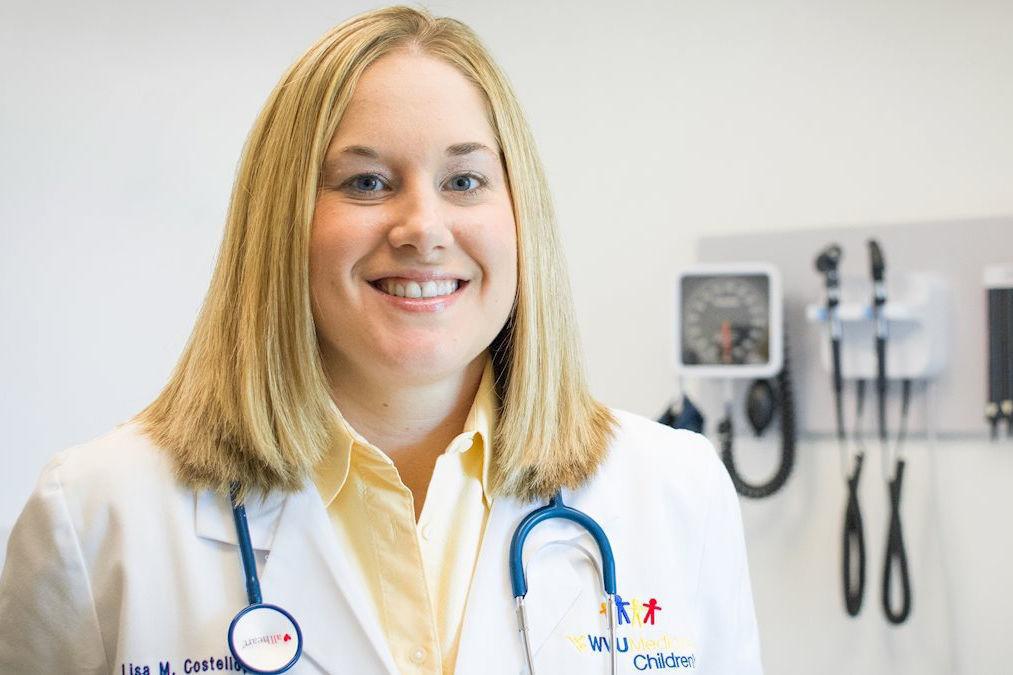The Centers for Disease Control and Prevention reports 1.5 million children aged 5-11 have received at least one dose of the COVID-19 vaccine. The lower-dose was approved for children by the head of the CDC earlier this month.
Lisa Costello is a pediatric hospitalist at WVU Medicine Children’s Hospital, president of the West Virginia chapter of the American Academy of Pediatrics and a member of the Joint Information Center within the West Virginia Joint Interagency Task Force for COVID-19 Vaccines. She sat down with 100 Days in Appalachia health correspondent Taylor Sisk to answer a few questions about COVID-19 vaccination for children.
This interview has been edited for clarity and length.
Taylor Sisk: Please give us a brief rundown on recent developments in COVID-19 vaccinations for children.
Lisa Costello: At the end of October and beginning of November, we saw the FDA as well as the CDC’s Advisory Committee on Immunization Practices recommend use of the Pfizer-BioNtech vaccine in children aged five to 11. It’s a lower dose than what is given for those who are 12 and older. This was based on clinical trials and studying doses. What they found was that this lower dose was more than 90 percent effective at preventing severe COVID-19 or death [in children], and that the side effects were very minimal.
TS: Back in the summer, when the Delta variant became prevalent, we saw cases of pediatric COVID skyrocket. Is the Delta variant more dangerous for kids?
LC: As we see this virus change and we see new variants or strains come along, we don’t know who will be more severely impacted by them. With the Delta variant, we did see an increasing number of cases in younger individuals. Children were back in school, maybe all of the mitigation strategies weren’t being followed, like wearing a mask, and then, of course, 5-to-11-year-olds weren’t yet eligible to be vaccinated.
I can say, anecdotally, that this past September on the inpatient unit in my pediatric hospital, I cared for more children in one week than I had over the past 10 months. More children are getting exposed to the virus.
We’ve seen that one-third of children hospitalized with COVID-19 have had no underlying medical condition, and they still ended up with severe COVID. Children that I’ve cared for who’ve contracted COVID-19 and been hospitalized have symptoms for weeks or months, whether it’s being incredibly fatigued or weak or having shortness of breath.
It’s really hard to predict who will get that severe disease. We’re learning more and more about the long-term impacts of COVID-19. But I can tell you that COVID-19 has been a top 10 cause of pediatric death.

TS: What questions do you most frequently get asked by parents about getting their kids vaccinated?
LC: The most frequent question is, “Is this vaccine safe for my child?” These vaccines really have undergone the most intensive safety monitoring in U.S. history, and that’s ongoing and will continue to be monitored.
These mRNA vaccines are a newer type of vaccine. Because of the severe nature of the pandemic, the scientific, public health and medical communities came together to get a safe and effective vaccine. But the science behind developing them has been going on for decades.
I also get questions about the side effects. The most common side effects are some redness, soreness and swelling at the injection site, which is common with any type of vaccine. Some people can feel tired or get a headache; they may have some chills or fever.
Really, those side effects are what we would expect; they’re an indication that your immune system is responding to the vaccine. And for the most part, we’ve seen that they’re short-lived.
Other side effects I get asked a lot about are myocarditis and pericarditis, which is inflammation in and around the heart. There have been reports of myocarditis and pericarditis after COVID-19 vaccination, but very encouragingly, in the 5-to-11-year-old population, with that smaller dose, there were no cases reported in the clinical trials.
I think it’s important for people to know that your risk of getting myocarditis or pericarditis from a vaccine is much lower than the risk of getting them from contracting COVID-19.
TS: Are there particular conditions or illnesses that your child might be living with that should weigh into a parent’s decision to get their child vaccinated?
LC: Certainly, there are situations. One of the biggest ones is a severe allergic reaction, or anaphylaxis – where they can’t breathe or they have a great deal of swelling – after receiving a past vaccine or after receiving the first dose of the COVID-19 vaccine. If they experienced that [after past vaccinations of any kind], then that would be something [to consider when deciding to get your child vaccinated]. But if your child has an allergy to peanuts, that’s not a [a reason not] to get the COVID-19 vaccine.
But it’s important to have those discussions with your pediatrician. There are also resources available through the CDC. I always recommend that parents talk with their pediatrician about their concerns.
TS: Are we going to just have to learn to live with COVID-19 indefinitely?
LC: I think we’re going to have to learn that the virus that causes COVID-19 will likely be around. Viruses are living things; they will change and try to mutate to stay alive, and that’s what we’ve seen with these different strains. But the sooner we can get more people protected, the better we’ll be at controlling the spread of the virus.
The last thing I want to say is about the importance of getting information from trusted and reliable sources. When it comes to childhood vaccination, the American Academy of Pediatrics, the Center for Disease Control and the FDA all offer guidance. And in West Virginia, there’s information at the website vaccinate.wv.gov.
There’s a lot of information out there, and I always encourage parents and caregivers to ask questions and to make sure they’re getting information from trusted sources, from people who’ve worked in this space, who’ve looked at the data and the guidelines and are able to provide their recommendations.
Taylor Sisk is 100 Days in Appalachia’s health correspondent. Support his work and our continued coverage of health care and access in the region by donating here.



